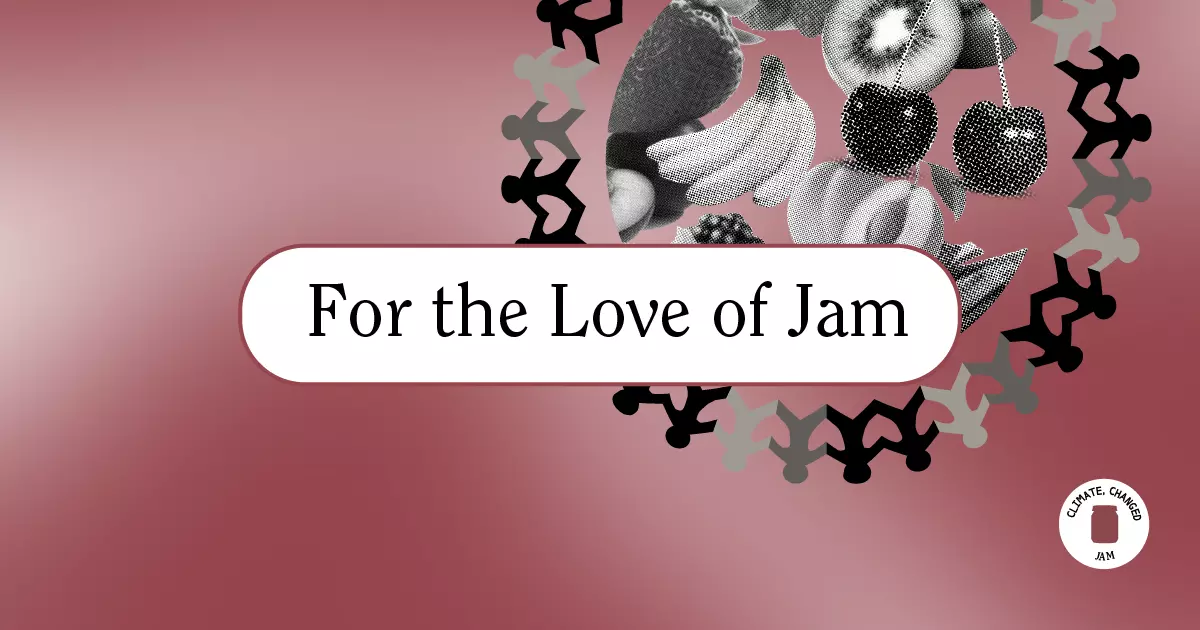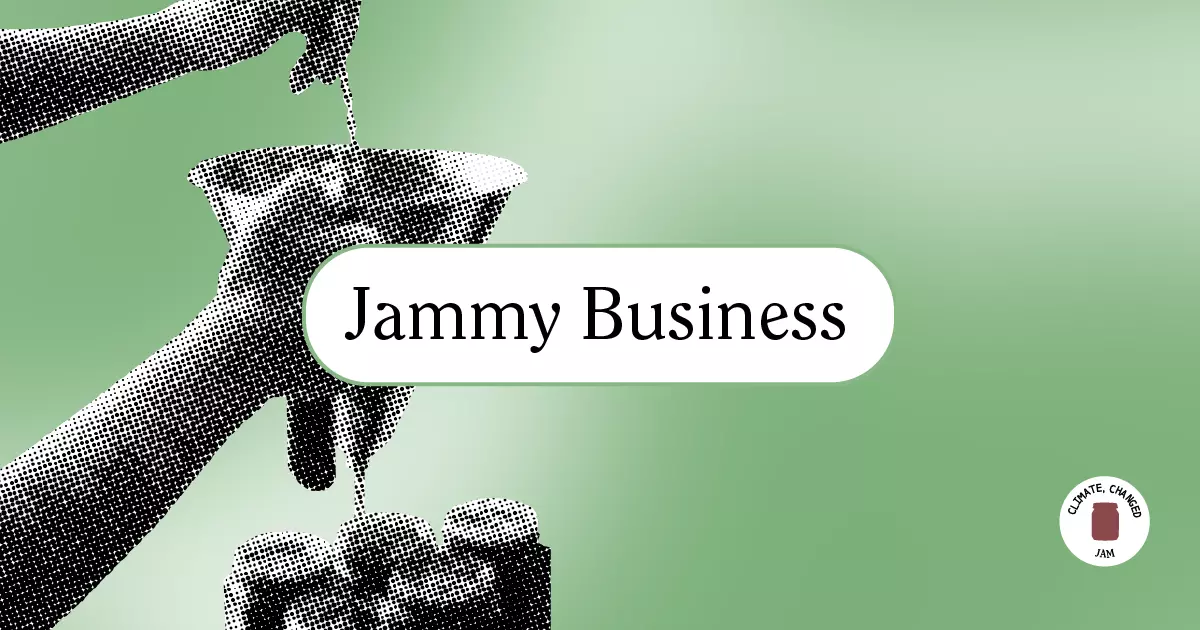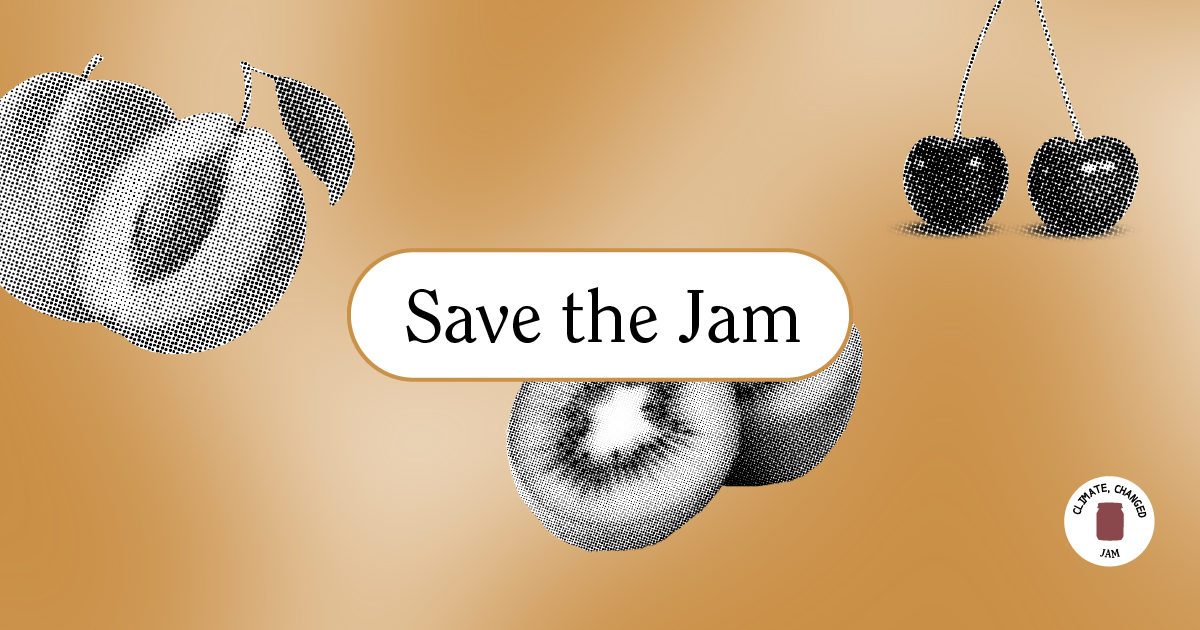INTERVIEW
With Diaspora Co., Sana Javeri Kadri Makes Equity Part of the Bottom Line
BY SARAH COOKE
SEPTEMBER 3, 2020
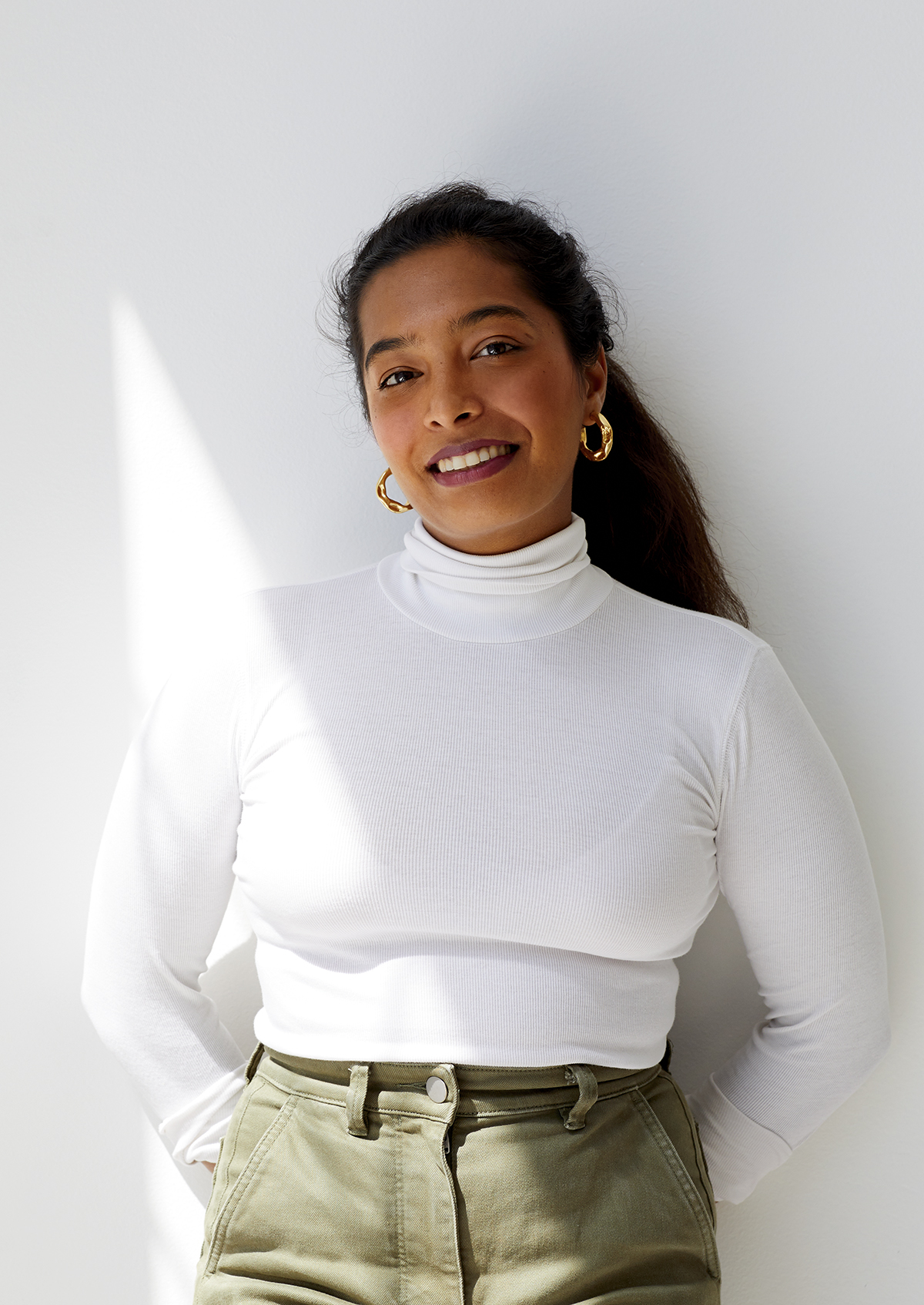
PHOTO: AUBRIE PICK
With just $3,000 from a tax return, Sana Javeri Kadri founded Diaspora Co. in 2017 as a single-origin spice company on a mission “to create a radically new and equitable vision of the spice trade, decolonizing a commodity back into a seasonal crop, and a broken system into an equal exchange.” Though partnerships developed with like-minded farmers across India, Diaspora Co. sources delicious, sustainable spices. Currently, they sell four spices—Pragati turmeric, Aranya pepper, Sannam chiles, and Baraka cardamom—all of which, unlike spices in grocery stores, are sold in the same year they were harvested.
This interview has been edited and condensed for clarity. The outtakes include when Sarah asked Sana if she still watches The Bachelor (she doesn’t; Sarah, sadly, does), and when Lily, Sana and her partner’s dog, walked in to say hello.
Sarah: Hi! Thank you again for making the time. I really appreciate it. How are you all doing in California right now? [At the time of the interview, the California wildfires were still blazing across the state, burning more land than five New York Cities combined.]
Sana: Not great. Everything is closed, we’re not going outside. I haven’t seen blue sky in about five days now. There’s ash all over everything—like, the tree outside my window is going to turn gray in a couple days.
Where are you?
I’m in D.C. There’s the perception of it being “The President, It’s Congress,” when it’s actually a really incredible and complicated city on its own terms.
The first thing that I wanted to ask you was about your original plans for Diaspora in 2020 and how COVID-19 affected them. Where are you now, versus where you thought you would be?
We had grand plans. We were going to have 15 spices by the end of this year; we’re now going to have about eight (adding on three or four by the end of this year). We were going to have a warehouse for packaging in India so that a lot more of our operations would happen in India, rather than here in the United States. And we thought we might have a holiday café or pop-up, a real community space.
What has happened is that the direct-to-consumer part of the business just exploded. Starting in March, we saw sales really take off, around 5X growth over last year. Part of that comes with responsibility to take care of our farm partners and our laborers, so we’re pushing all of our attention to building a sustainable, safe supply chain that keeps everybody healthy across the board.
Before the pandemic, I spent so much of my time travelling. The pandemic has put a lot into focus and made us realize that as fun as that stuff was, none of it was the actual work. The work is decolonizing the spice trade, taking care of our farm partners, and growing.
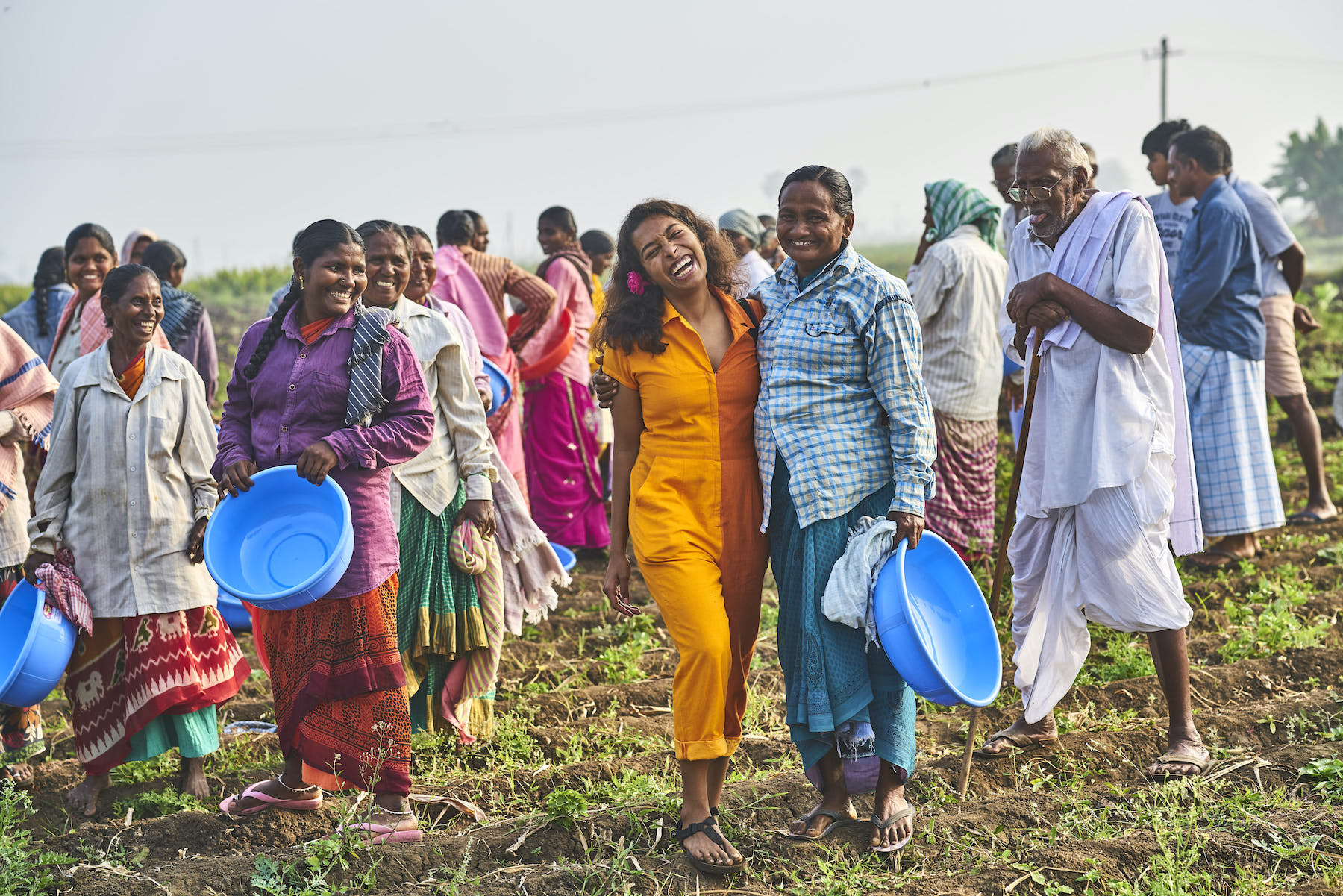
Diaspora Co. tumeric harvest. Gentl and Heyrs
In the conversation between you and Stephen Satterfield for the Museum of Food and Drink, you referenced the balance between being a thought leader and a CEO. How do you define those terms, and what are the opportunities and obstacles they give you?
My role as CEO involves the profitability and growth of the business. Is there money in the bank? Is there money enough to grow to next year? And the thought leader is the part of me that started this business to claim space and to build something that was equitable in a way I wasn’t seeing anywhere else. The part of me that was not recognized three years ago.
When I started the business, we got great press for our product, but we didn’t necessarily get positive press for the work that we were doing. It was seen as kind of frivolous and silly and “Ugh, it’s just these brown people whining.” It’s only three years later that people are like, “Oh, right right right, equity! Right right right! Representation!”
“We LOVE this.”
“We LOVE that. Yes yes yes.” And I’m like, “Bitch, you did not love this a year ago.”
Pushing my own thinking on what equity looks like, what sustainability looks like, is the thought leadership. I do think that there’s room for it as a CEO, because in the best scenario, a CEO should be thinking about the long-term sustainability of the company, not just the profitability.
But we exist in late-stage capitalism in a global pandemic. It’s really hard to survive, and it’s very hard to be that sustainable, thoughtful CEO right now. It’s easier to be like, “What is going to bring in clicks, eyeballs, dollars?”
What is the fullest expansion of your vision that you would love the company to go towards? In 2030, what does Diaspora look like?
We recently put together a big booklist on Bookshop, and it was received very well. I think it helped people understand the larger framework and writing that this business is in conversation with.
But some of the books on it are Getting Things Done and Grit (and I stand by yes, it’s true that Grit is somewhat problematic). I read a lot of CEO business books, because I have to know how to do some of that stuff. Coming from having no experience with that, I want to read the full spectrum of what’s out there and figure out what’s best for us. I actually got pushback from some people on those two books: “Why do you have Getting Things Done, which is all about productivity in capitalism?” Because I need to get things done!
In terms of thinking about the growth of the company beyond revenue goals and spices and SKUs: Right now, I do a lot of the work of translation, taking what I’m told by our farmers and marketing it to an American audience in a way that is as true to what they meant as possible.
My dream is that Diaspora becomes a farmer-led company, and they have the power to do their own storytelling. They don’t need the trader at all; it’s like farm to table without anything in between. The absolute dream would be that 10 or 15 years now from now, our network of 500 farmers buy me out and take over the business as 100% farmer-owned, and Diaspora Co. becomes Diaspora Co-op.
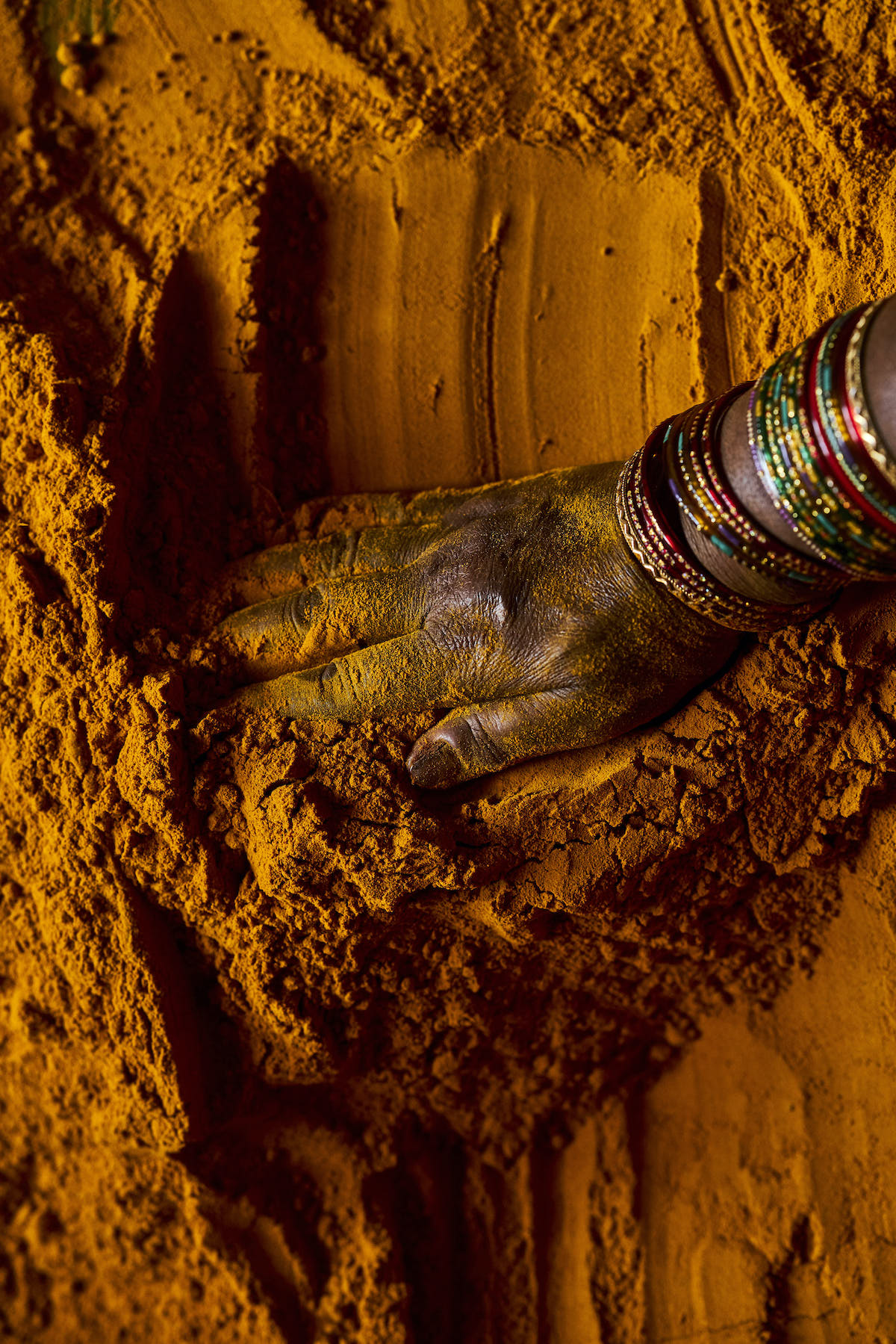
Diaspora Co. tumeric harvest. Gentl and Heyrs
When you’re thinking about translation, what are the things that you’re tending to?
My background is as photographer, but I was also a marketing manager for Bi-Rite here in San Francisco, where I was working on how you take the most beautiful peach in the world, the Masumoto Family Farm peaches, and explain them to a customer such that they’re willing to pay the tremendous case price for them and understand their beauty, as well as their history. Masumoto Family Farm is one of the few Japanese-American farms that survived internment, that survived World War II, which is why they are able to exist at the level excellence they do today. So I was already thinking about, “How do you tell a story around deliciousness, around flavor?” but tell it in a way that gives you the full arc.
For example, with our turmeric farmer: Why was his family growing tobacco unprofitably for three generations? They weren’t stupid, they’re clearly smart people, so why were they forced into that system? What did it take for the fourth generation to be able to make this shift?
In this case, it took Prabhu being given the best education of his entire extended family. Everyone pooled their resource to give him an education. He got an MBA in Poona, a big city on the west coast of India, and came back to the farm, almost in act of defiance to his family, and said, “I want to farm, I want to work in agriculture.”
I approach Diaspora around that: I want people to know how many generations of effort and movement towards the goal it took to get to the goal.
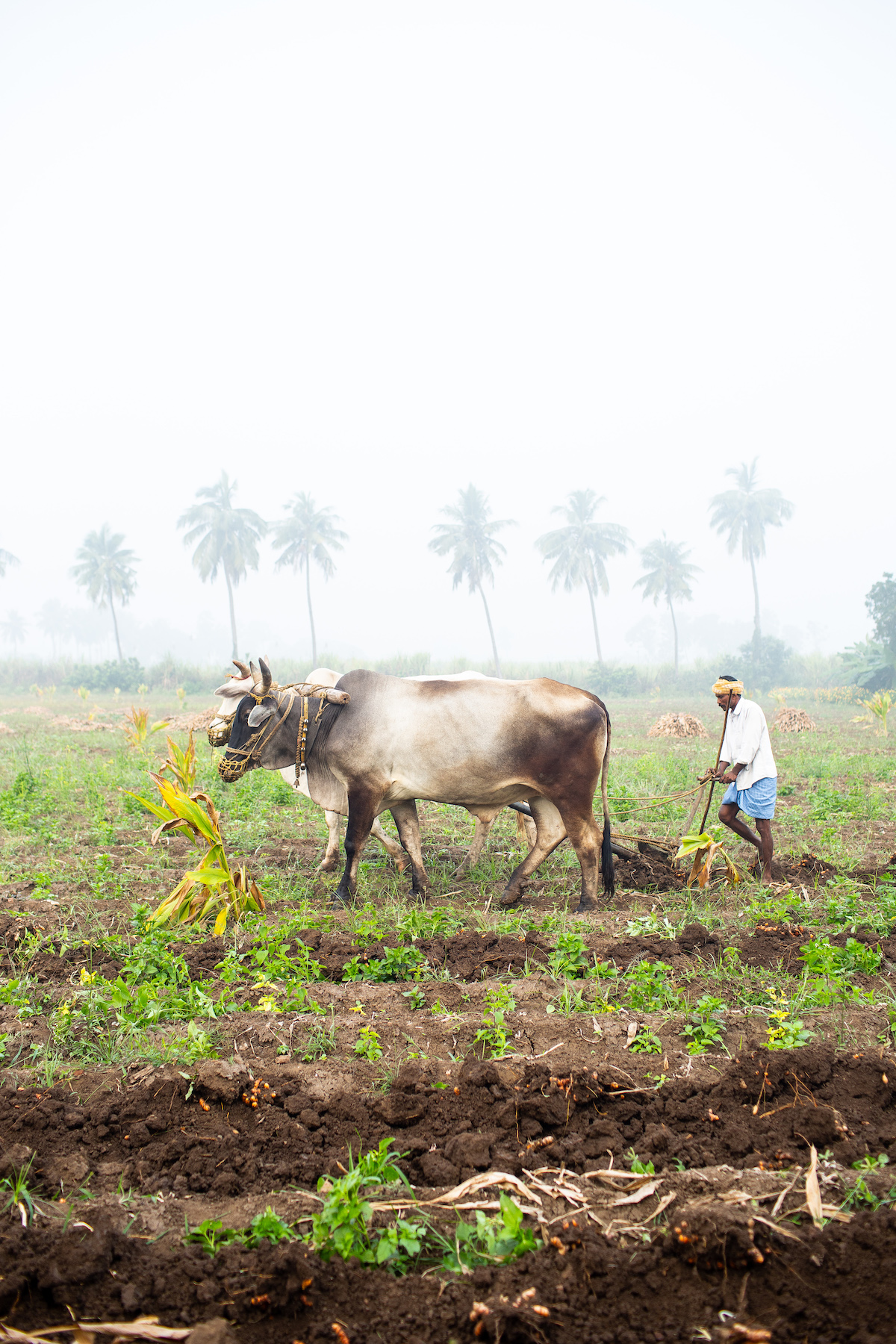
2019 tumeric harvest. Diaspora Co.
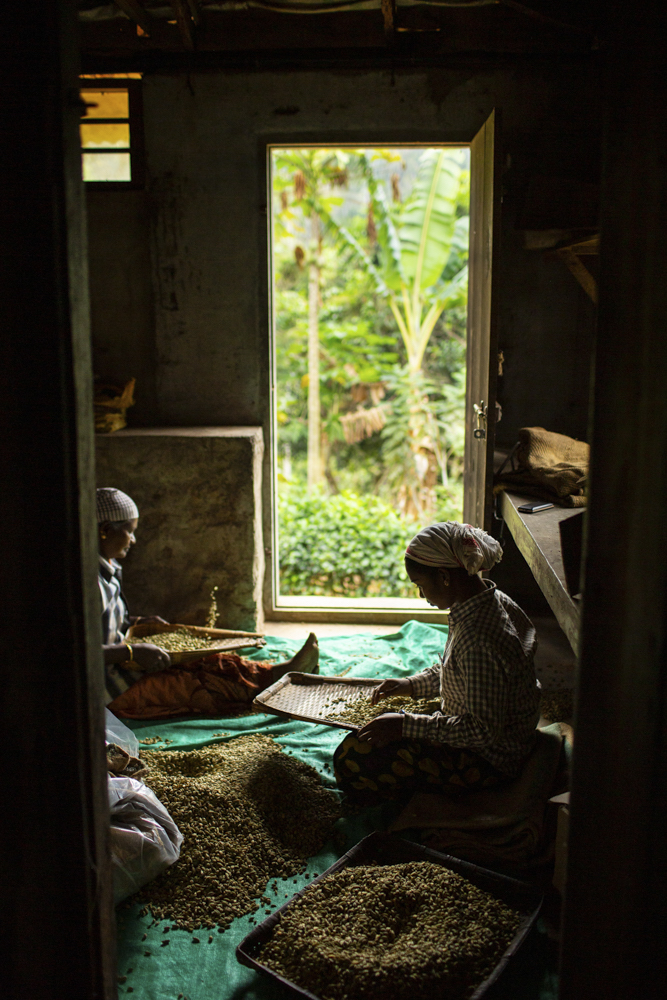
Baraka cardamom. Diaspora Co.
If we don’t know anything about the context or the people or the land behind the food, I think that’s where we get into the territory of food as lifestyle.
I’ve found with our community and our customers that it’s really people who truly care, because we gave them all the information that they needed to care.
Therapy has really helped me integrate boundary setting into business. Yes, we will be wonderful about our customer service, but we’ll also draw boundaries. If anyone, usually a Karen, crosses that boundary, I’ll cancel their order. I want my staff to know that we will advocate for them over and above a $30 transaction.
With our pre-orders, we had to communicate with people and say, “Do not buy this product if you are in a hurry to receive it. And if you’re not comfortable with that, that’s fine. Don’t buy.” Largely, people have been really good about that, because we drew the boundaries for them to exist within and interact with us.
Recently, we sent out an email saying, “We know that you all have been waiting a long time for your product, but we are three and a half people and we don’t have the ability to respond to all of your emails, so here is an update. Stop emailing us.” And it worked! People were immediately kind and sensitive and generous in a way that they weren’t a week before.
I read an interview where you described queerness—and I’m going to read your words back to you; they’re so beautiful—as “a value system and a larger political movement of equity and acceptance, that basically says everyone can be their full selves here.” How did you arrive at that articulation for yourself?
I never fit in. My entire childhood in Mumbai was a series of tearful encounters. There was lots of bullying; I changed schools a couple times. But I always cared deeply about other people, is what it is, and I had a deep desire for equity.
I didn’t know what queerness was until I was almost 20, so I discovered that very late in my life—I discovered that six years ago. So I never had a lens to explain myself or see the world through; it always felt like, “I’m a bit of a freak, and I don’t know.” My desire to stand up to power, to fight for equality, didn’t have a home. It just made me an angsty mess.
Discovering my sexuality gave me a political community. In my case, I’m referring to the People’s Kitchen Collective (PKC), which is a Black and brown-led queer hospitality collective. I met them when I had just come out and I didn’t have a lot of familial support. I was 22 in Oakland and completely ostracized, and they were my family. They were using queerness as a lens for liberation for all people, and I loved that.
I started Diaspora, really, with PKC as the wind beneath my wings encouraging me and pushing me forward. There was no conversation about having Diaspora be an inherently queer business; it was just obvious. Queerness is the framework that I found myself in, and that I feel most whole in and allowed to express so many parts of my own personal identity, not just sexuality. It’s even my ambition, my bossiness. In a culture that really didn’t value them, it all feels queer.
As we’ve gotten bigger, I have walked away from it a little bit, or saying it out loud at least, because I recognize that while my farm partners and my team understand the values we stand for, they might not understand the queer framework. The words are not necessary; it’s the values and the actions that we move forward with.
I love the PKC motto: “Feed the mind, nourish the soul, fuel a movement.” What’s feeding and nourishing you right now and fueling the movements you’re a part of?
In this moment, there are such incredible women of color doing amazing writing, from Tejal Rao to Yewande Komolafe. Alicia Kennedy. My bestie, Stephen Satterfield, who is a Black man in the industry who has been loud for a very long time. Mayukh Sen.
I think voices that were finally called “difficult” are finally being given bylines and the attention they deserve, and I love to see it. It’s so amazing to open up Instagram and see that a new person has written something that we have felt for years and years. Showing all these articles to the Diaspora customers helps us share the web of writing that Diaspora was born out of.
That’s what is really getting me through right now. It’s not anything food-related, because god knows I’m not cooking.
Sign up for Currantly, our newsletter delivering original food stories and news analysis, with surprise treats of freshly curated recipes and product drops. Think of it as your monthlyish digest to deepen your stance on food issues and be creatively inspired.
Sarah Cooke is a freelance writer and reporter based in Washington, D.C. Her reporting, which explores the intersection of food, culture, and power, has appeared in DCist, Eater DC, and Washington City Paper.
Sign up for Currantly, our monthlyish newsletter delivering original food stories and news analysis, plus fresh curations of recipes and product drops.
